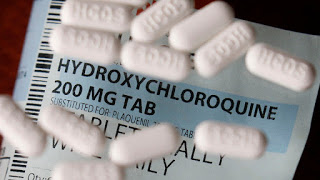I've was debating hard with the C19 conspiracists and then this article turned up. Although I never did debate with them about this topic that much. The conspiracists think that Bill Gates and Big pharma closed this research down as it competed with the new medicines they are developing, but maybe there was just some kind of error? We will have to see.On its face, it was a major finding: Antimalarial drugs touted by the White House as possible COVID-19 treatments looked to be not just ineffective, but downright deadly. A study published on 22 May in The Lancet used hospital records procured by a little-known data analytics company called Surgisphere to conclude that coronavirus patients taking chloroquine or hydroxychloroquine were more likely to show an irregular heart rhythm—a known
Topics:
Mike Norman considers the following as important:
This could be interesting, too:
Robert Vienneau writes Austrian Capital Theory And Triple-Switching In The Corn-Tractor Model
Mike Norman writes The Accursed Tariffs — NeilW
Mike Norman writes IRS has agreed to share migrants’ tax information with ICE
Mike Norman writes Trump’s “Liberation Day”: Another PR Gag, or Global Reorientation Turning Point? — Simplicius
I've was debating hard with the C19 conspiracists and then this article turned up. Although I never did debate with them about this topic that much. The conspiracists think that Bill Gates and Big pharma closed this research down as it competed with the new medicines they are developing, but maybe there was just some kind of error? We will have to see.
On its face, it was a major finding: Antimalarial drugs touted by the White House as possible COVID-19 treatments looked to be not just ineffective, but downright deadly. A study published on 22 May in The Lancet used hospital records procured by a little-known data analytics company called Surgisphere to conclude that coronavirus patients taking chloroquine or hydroxychloroquine were more likely to show an irregular heart rhythm—a known side effect thought to be rare—and were more likely to die in the hospital.
Within days, some large randomized trials of the drugs—the type that might prove or disprove the retrospective study’s analysis—screeched to a halt. Solidarity, the World Health Organization’s (WHO’s) megatrial of potential COVID-19 treatments, paused recruitment into its hydroxychloroquine arm, for example. (Update: At a briefing on 3 June WHO announced it would resume that arm of the study.)

